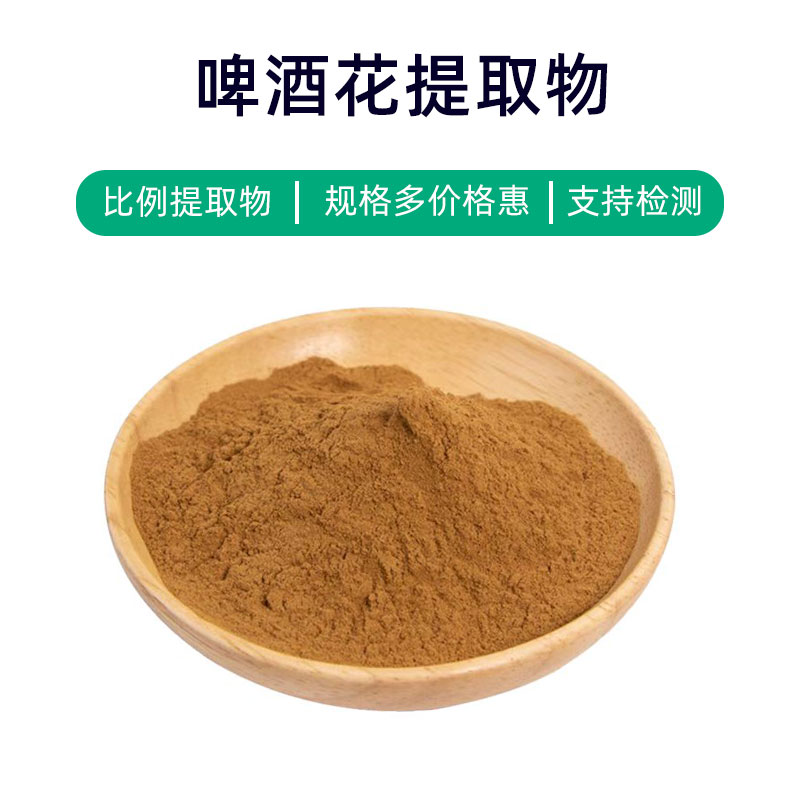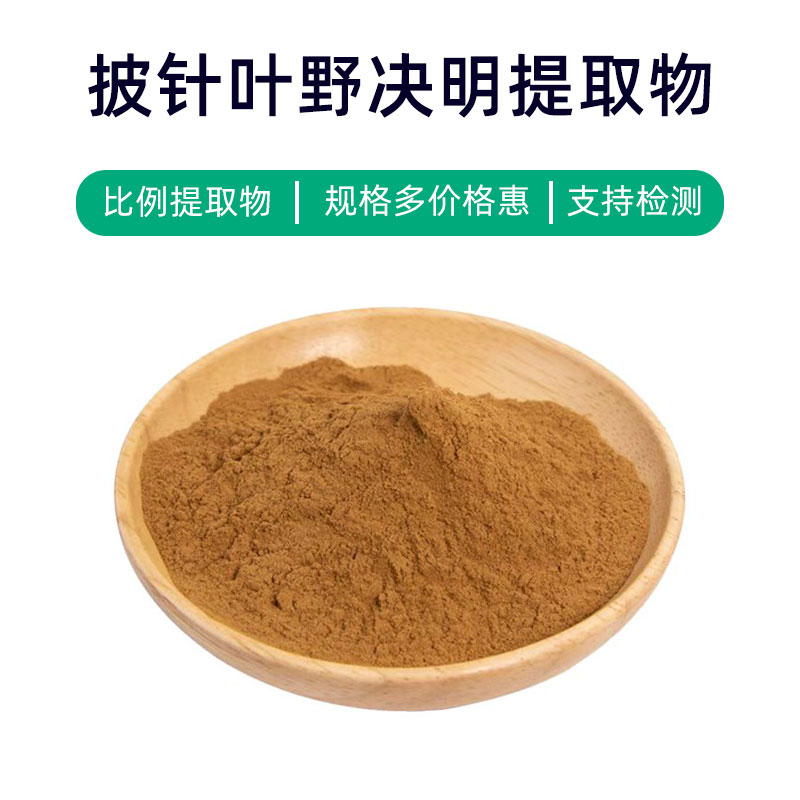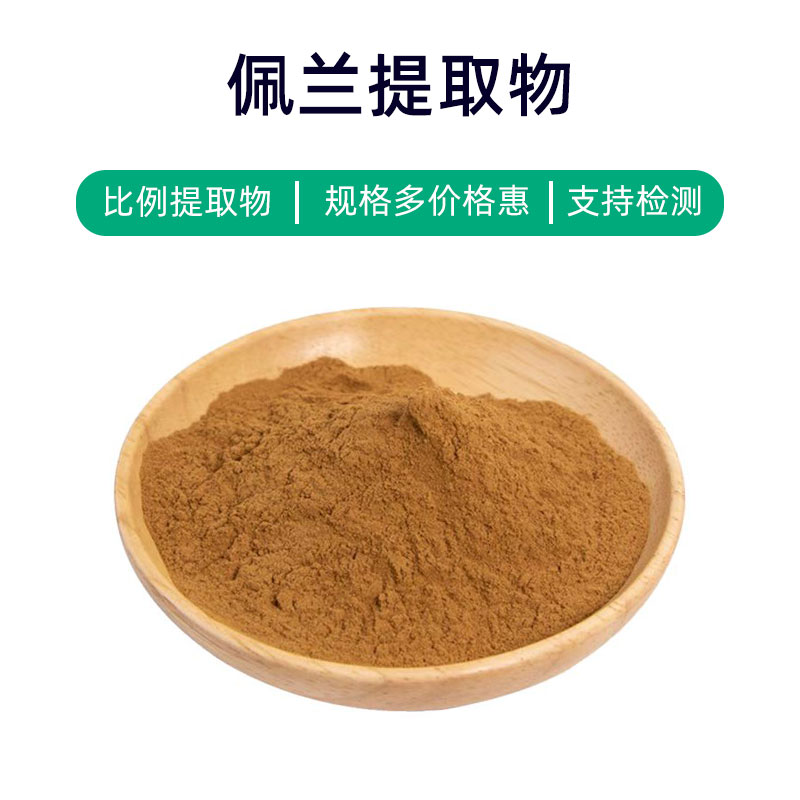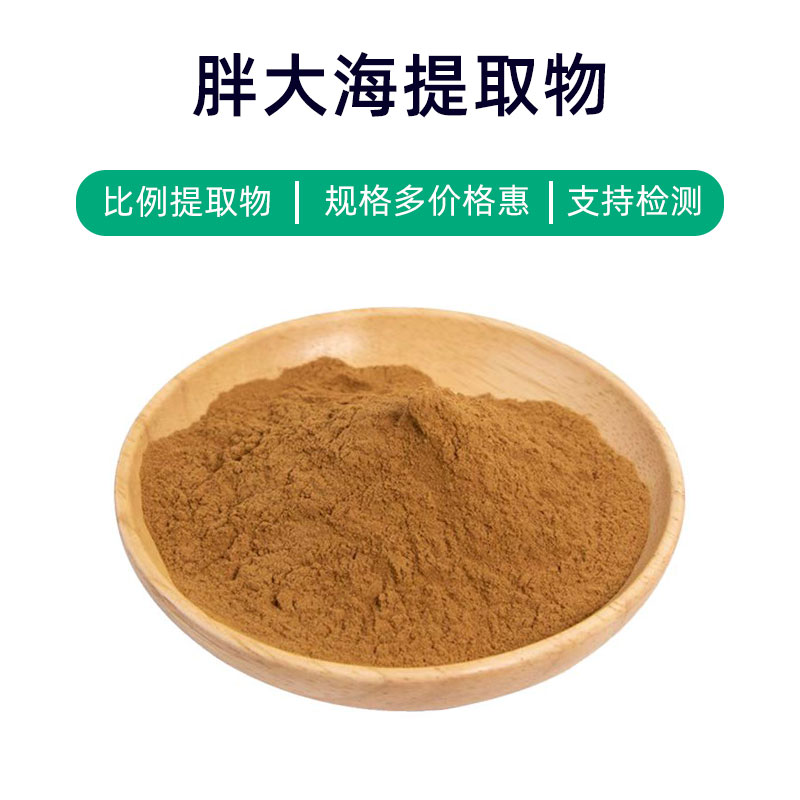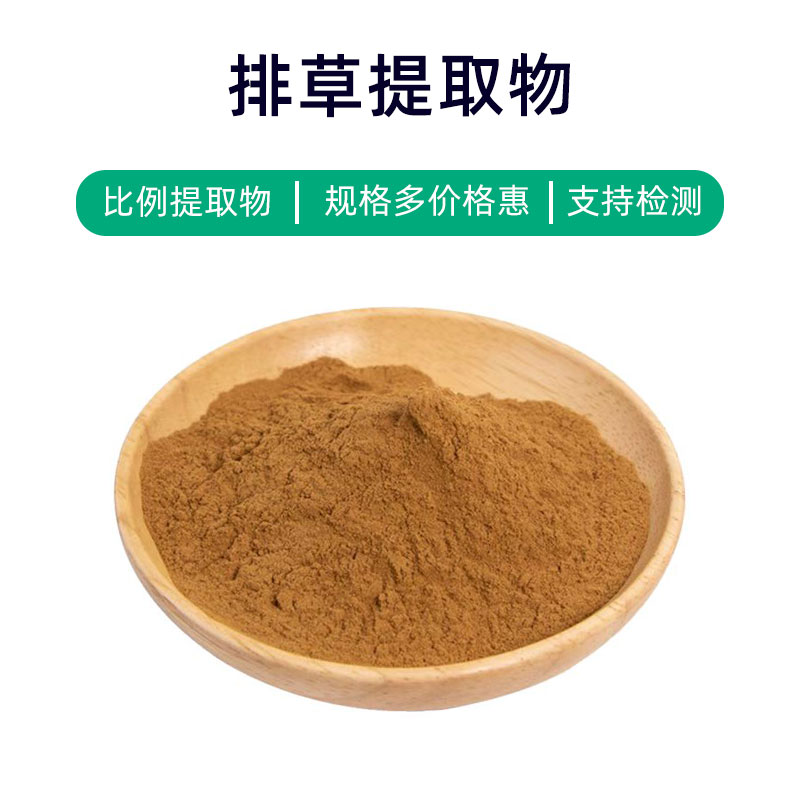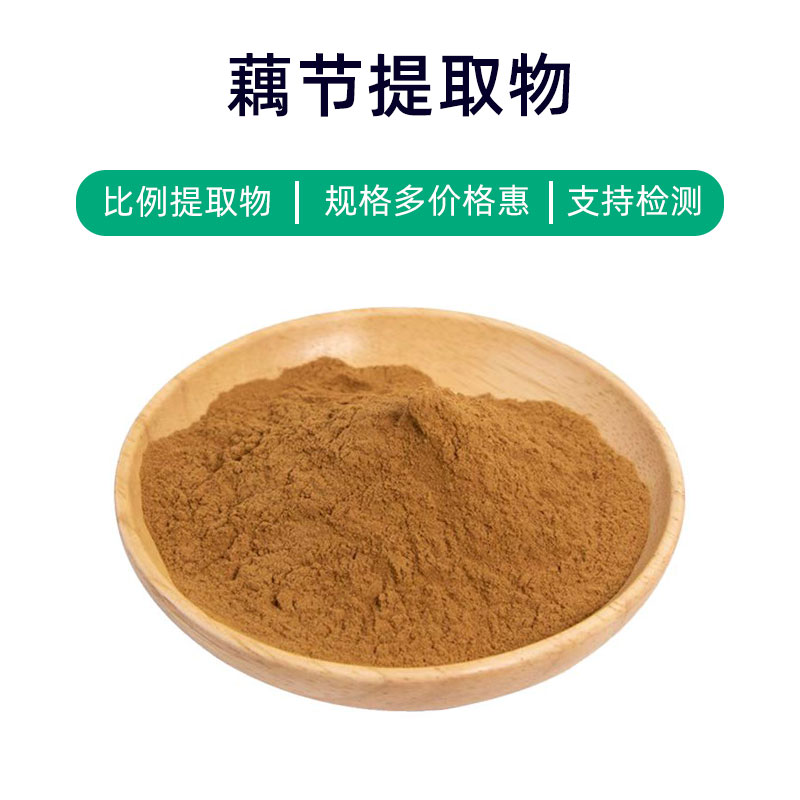Ghana Seed Extract Product Introduction
Ghana seed extract is a natural plant extract derived from Ghana seeds, primarily containing nutrients like proteins, fats, carbohydrates, vitamins, and minerals. Its benefits are mainly seen in nutritional supplementation and skincare. Rich in various nutrients, Ghana seed extract can provide essential nutrients for the body, helping to maintain health and promote metabolism. Additionally, it exhibits antioxidant, anti-inflammatory, and moisturizing properties, protecting the skin from free radical damage, alleviating skin inflammation, and enhancing moisture retention, resulting in softer, smoother, and more elastic skin. In the pharmaceutical, health products, and cosmetics sectors, Ghana seed extract is widely incorporated into various formulations such as creams, lotions, serums, and masks, serving as a natural ingredient to meet diverse consumer needs for comprehensive nutritional support and skincare.
Ghana Seed Extract Production Process
The typical production process for Ghana seed extract includes the following steps:
- Raw Material Preparation: Select fresh, high-quality Ghana seeds, washing and screening to remove impurities and foreign substances.
- Grinding: The cleaned Ghana seeds are ground or crushed to increase surface area, facilitating subsequent extraction.
- Extraction: Use suitable extraction methods such as water extraction, alcohol extraction, or supercritical fluid extraction to extract active components from the seeds.
- Filtration: Filter the extract through a filter to remove suspended solids and particles, resulting in a clarified extract.
- Concentration: Use concentration equipment like rotary evaporators or vacuum concentrators to concentrate the extract, increasing the concentration of active components.
- Purification: Through purification processes like precipitation, crystallization, and separation, remove impurities and unwanted components to enhance product purity.
- Drying: Dry the concentrated solution to eliminate moisture, obtaining a dry extract.
- Grinding and Packaging: Grind or mill the dried extract to achieve a fine, uniform powder, then package it to ensure preservation and usability.
- Quality Inspection: Conduct quality checks on the finished product, including appearance, component content, and the presence of microorganisms and heavy metals, to ensure compliance with relevant quality standards and regulations.
- Storage: Store the packaged product in a dry, cool, ventilated environment, avoiding direct sunlight and high temperatures to extend shelf life and stability.
Ghana Seed Extract Effects and Side Effects
As a natural plant extract, Ghana seed extract has various effects and benefits, mainly including:
- Antioxidant Effects: Rich in natural antioxidants, such as polyphenols and vitamins, it neutralizes free radicals in the body, reducing oxidative stress and protecting cell health.
- Anti-inflammatory Effects: Studies indicate that active components in Ghana seed extract have anti-inflammatory properties, inhibiting the release of inflammatory mediators, alleviating symptoms of inflammatory diseases.
- Antibacterial and Antiviral Effects: Natural compounds in Ghana seed extract exhibit antibacterial and antiviral activities, inhibiting the growth of bacteria and viruses, aiding in the prevention and treatment of infectious diseases.
- Blood Sugar Reduction: Some studies show that components in Ghana seed extract may help reduce blood sugar levels by promoting insulin secretion and utilization, providing auxiliary treatment for diabetes.
- Lipid Reduction: Active components in Ghana seed extract regulate lipid metabolism, lowering cholesterol and triglyceride levels in the blood, preventing cardiovascular diseases.
- Immune System Support: Nutrients and bioactive substances in Ghana seed extract may enhance immune function, increasing resistance and reducing the risk of infections and diseases.
- Anti-aging Effects: Rich in antioxidants, Ghana seed extract can slow down the aging process of cells, helping to maintain skin elasticity and radiance while reducing the formation of wrinkles and dark spots.
- Improvement of Skin Conditions: With moisturizing, anti-inflammatory, and antioxidant properties, Ghana seed extract can improve dry skin, inflammation, and oxidative damage, contributing to overall skin health and youthfulness.
It’s important to note that while Ghana seed extract has numerous benefits, excessive use may lead to adverse reactions such as digestive issues or allergies; therefore, it should be used responsibly, following medical advice or product instructions.
Ghana Seed Extract Application Scenarios and Dosage
Ghana seed extract has extensive applications in pharmaceuticals, food, and cosmetics, with usage and dosages varying by scenario.
- Medical Applications:
- In the pharmaceutical field, Ghana seed extract is commonly used to prepare medicines or health supplements for the prevention and treatment of inflammatory diseases, cardiovascular diseases, diabetes, and more. Dosage can be according to product instructions or doctor recommendations.
- Typical dosage ranges from 10 to 100 milligrams daily, adjustable based on individual circumstances and severity of disease.
- Food Applications:
- Ghana seed extract can be used as a food additive to enhance the nutritional value and functionality of food products, such as antioxidant, preservative, and flavor-enhancer. It is commonly found in juices, beverages, and health supplements.
- Addition levels are typically based on food production standards, generally ranging from 0.1% to 1% of the total food quantity.
- Cosmetics Applications:
- In cosmetics, Ghana seed extract is often included in skincare and haircare products for its antioxidant, anti-aging, moisturizing, and repair benefits, improving skin conditions and enhancing hair shine.
- Suggested usage involves direct incorporation into skincare products or formulating into masks and serums, with specific dosages recommended in product instructions or by professionals.
- Precautions:
- When using Ghana seed extract, adhere to product labels or medical advice to avoid adverse effects from overuse.
- Special groups, such as pregnant women and children, should use it under medical guidance.
- Conduct a patch test before use to ensure no allergic reactions or other adverse effects occur.
As a natural plant extract, Ghana seed extract holds significant potential in the medical, food, and cosmetics fields, but should be used with caution, following recommended dosages and methods for safety and effectiveness.
Ghana Seed Extract Source Plant Introduction, Distribution, and Growing Environment
The plant source of Ghana seed extract is Irvingia gabonensis, commonly known as the African mango, a tall evergreen tree native to West Africa, belonging to the Irvingiaceae family.
- Plant Characteristics:
- The Ghana mango tree can reach heights of 20 to 40 meters, with a wide crown and thick trunk, featuring gray-brown bark.
- The leaves are long and oval, glossy, with serrated edges, pointed tips, and rounded bases.
- Flowers are small, white, and clustered at the branch tops, typically blooming between May and July each year.
- The fruit is an oval nut, turning deep orange when mature, with thick flesh encasing a seed.
- Distribution:
- Ghana mango trees are primarily found in the tropical rainforests of West Africa, including countries like Gabon, Cameroon, and Nigeria. The name "Ghana mango" comes from the Ghana area in Gabon where they are prevalent.
- In the wild, Ghana mango trees often grow in wetlands, marshes, and riverbanks, preferring warm, humid climates and fertile soils.
- Growing Environment:
- Ghana mango trees thrive in tropical rainforest regions, typically found at elevations of 200 to 500 meters in lowland areas.
- They are not particularly picky about soil but do best in fertile, well-drained soils like clay or sandy loams.
- Humidity is a critical factor for their growth; they require ample rainfall and high humidity, making them common in rainy regions.
The Ghana mango is the primary plant source for Ghana seed extract, and its natural distribution and specific growth environment in West Africa provide the unique conditions necessary for the development of this valuable natural plant extract.
Ghana Seed Extract Processing and Storage
The processing of Ghana seed extract generally involves the following steps:
- Cleaning and Shelling: First, the harvested Ghana seeds are cleaned to remove surface impurities and dirt. Then, the shells are removed to isolate the fruit.
- Grinding and Crushing: The cleaned fruit is ground and crushed to facilitate the extraction process.
- Solvent Extraction: Suitable solvents (such as ethanol or acetone) are used to extract the active components from the Ghana seeds, dissolving them into the solvent.
- Concentration and Drying: The extract is concentrated to remove excess solvent, resulting in a concentrated extract. It is then dried to reduce moisture content and improve stability.
- Refining and Quality Control: The extract undergoes refinement to remove impurities, ensuring that the product meets purity and quality standards, along with quality control to ensure compliance with relevant regulations.
Storage of Ghana seed extract primarily involves the following considerations:
- Moisture Control: Store Ghana seed extract in a dry, well-ventilated environment to prevent moisture and spoilage.
- Light Protection: Avoid exposure to direct sunlight; consider using opaque containers or sealed packaging to protect the extract from light.
- Low-Temperature Storage: In dry, ventilated conditions, choose to store Ghana seed extract in a cooler environment to extend shelf life and slow oxidation.
- Sealed Storage: Place Ghana seed extract in sealed containers to prevent air and moisture entry, which can accelerate oxidation and quality degradation.
- Regular Inspection: Periodically check the extract for changes in appearance and properties, taking immediate action if any abnormalities or spoilage are detected to ensure quality and stability.
By following proper processing and storage methods, the quality and efficacy of Ghana seed extract can be maintained, providing a solid foundation for its subsequent applications.
Monica Sun is a seasoned expert in the plant extraction industry with over a decade of experience in research and production. She specializes in the extraction and purification of plant active ingredients, focusing on driving innovation in natural product applications. Monica has participated in the development of multiple functional plant extracts, delivering high-value natural raw material solutions for the health food, pharmaceutical, and dietary supplement sectors.









